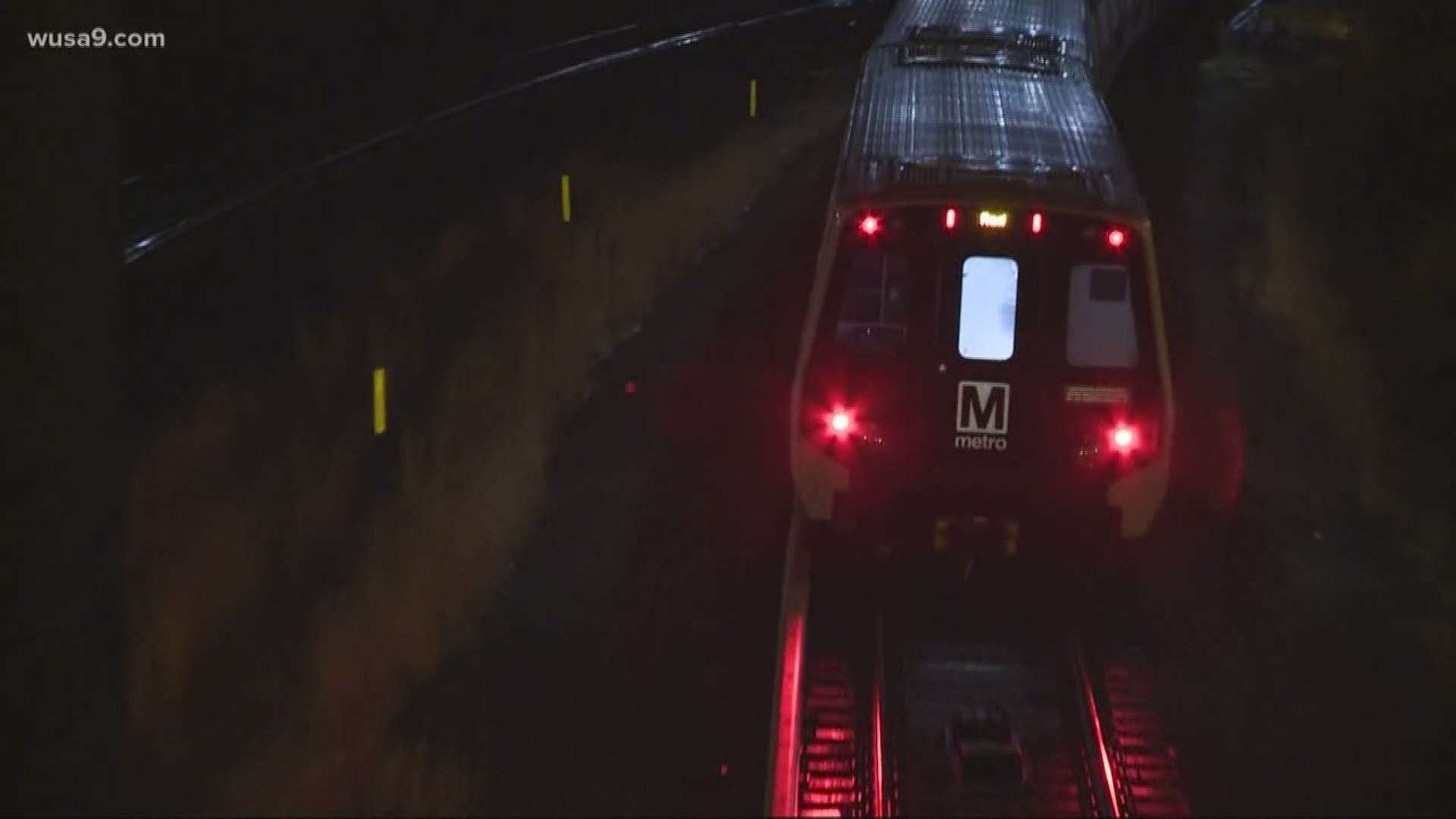WASHINGTON -- Metro just opened registration for a new program for late-night workers who commute outside normal service hours that would subsidize their Lyft ride home.
Starting July 1, qualified workers can get a $3 subsidy toward a shared ride on Lyft for trips taken between their home and workplace.
The on-demand service will be offered seven days a week for trips within Metro’s service area between midnight and 4 a.m. Metro would pay the first $3 of the fare, with up to a maximum of 10 trips per week per registered rider.
The move comes after a renewed debate earlier this year over whether to restore Metro’s operating hours to pre-2016 levels when the system was open until midnight on weeknights and 3 a.m. on weekends. In the end, the hours stayed the same and Metro's doors stayed shuttered for late night service.
The decision, Metro officials said, was to allow crews to improve maintenance, safety and reliability during those overnight hours.
“This program will provide late-night workers with a more affordable transportation option during overnight hours as we advance essential maintenance programs that improve safety and reliability,” said Metro General Manager/CEO Paul J. Wiedefeld in a press release Monday, of the new program.
The pilot program is slated to run through June 2020, or until the $1 million budget runs out. Officials said in a release they plan to "evaluate customer feedback, utilization, and other factors" when deciding if they should continue the program past that point.
For more info and to apply, click here. If you want to start using the service July 1, officials said you should submit your information by June 28. Enrollment in the program is on a first-come, first-serve basis .
Uber and Lyft are among Metro’s stiffest competitors. In a study, researchers at the University of Kentucky found that when ridesharing apps entered a market, rail and ridership and bus ridership decreased.
Researchers said the effect “builds with each passing year and may be an important driver of recent ridership declines.” The new data reinforces drops in Metro ridership by more than 100,000 average daily riders over the last decade.
Last summer, DC council considered taxing ridesharing to help fund Metro.
According to a release, Metrorail reliability has been near record highs for the last two months. Officials also said the “improved infrastructure condition has also resulted in a sharp reduction in single-tracking events (down 35 percent) over the past eight months compared to the previous year.”
Eligible workers, according an earlier Metro release, would be "primarily in the hospitality and health care industries."
Tuesday, officials clarified you don't need to work in those particular industries to qualify.
"The program is open to all industries that have employees starting or ending work between midnight and 4:00 a.m.," a WMATA spokesperson said via email.
To read more, click here.

